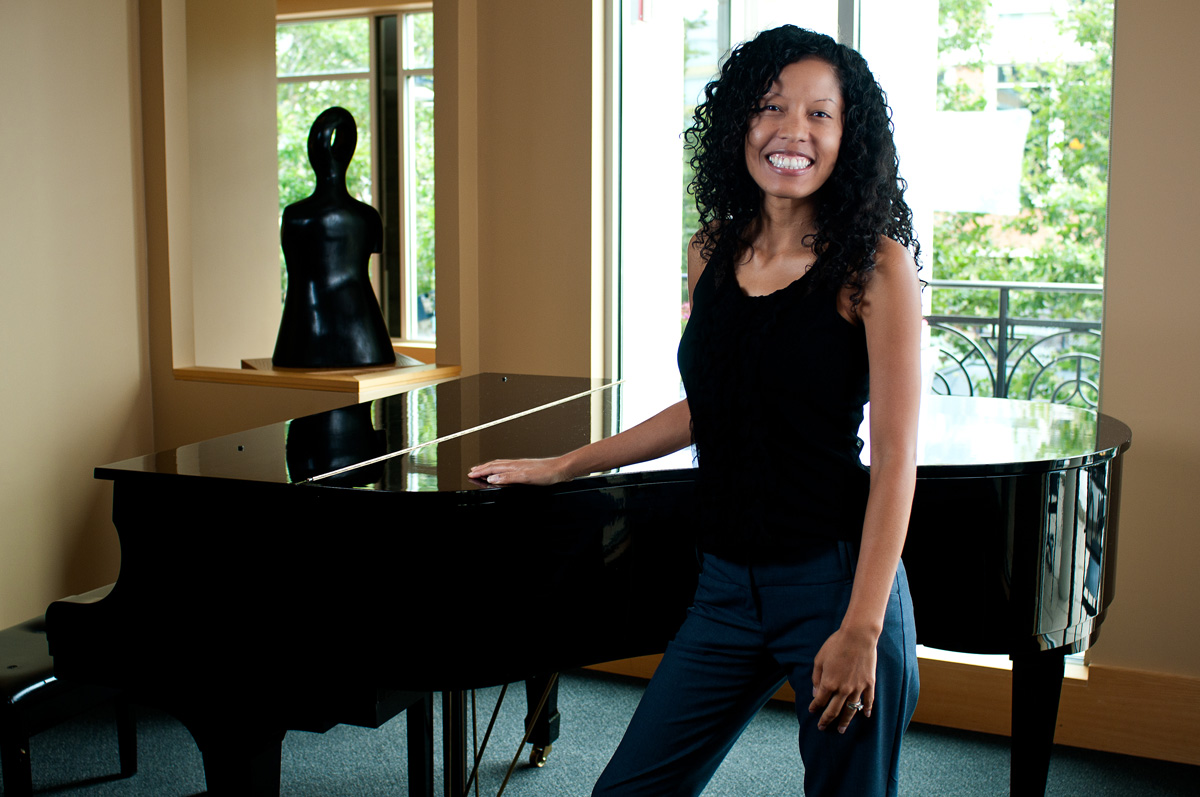
Master Financial Education Volunteer Diana Yacob
Our volunteers rock. Want proof? Meet Diana Yacob.
Name: Diana Yacob
Lives: Alexandria
Works: assistant to a University of Maryland Extension specialist and an Accredited Financial Counselor candidate
Master Financial Education Volunteer Since: August 2014
Diana Yacob was instrumental in the success of our inaugural Money Smarts Payseries for Spanish speakers last fall. She taught the budgeting class, coached two clients and led study sessions to help all participants catch up on their action items. Her impact was evident at the awards ceremony, when Money Smarts Pay graduates said that they were budgeting their spending and saving money for emergencies.
Now Diana is helping Extension revise the lesson plans for the Spanish edition of Money Smarts Pay. The series starting in March will focus on small group or one-on-one coaching rather than all classroom instruction because literacy was a challenge for many participants. The new Money Smarts Pay Spanish will consist of 30 minutes of classroom instruction and 90 minutes of small group or one-on-one coaching rather than 90 minutes of classroom instruction.
Q: What’s your New Year’s resolution?
A: I can read and write in Korean. I’m intermediate, but I’d like to be advanced conversational, fluent. My mom is Korean. I’m the only child in my family who speaks Korean. Who’s going to connect with all the family that’s still in Korea? I need to get that down before the kids come, so the culture isn’t lost. If I can pass down the language of Korean, there’s still hope the Korean culture will survive in my family.
Q: If you’re stuck on an island, what are the three things you’d want with you?
A: My husband so I would have someone to talk to. He can go fish. A water purifier to stay alive. Can I bring a cell phone? I’ll bring a cell phone. But I have nothing to charge it with. Maybe a tarp instead?
Q: How did you become interested in financial education?
A: I took a personal finance course in undergrad. That professor became my mentor, and she helped me get into grad school. I went to Kansas State for my master’s in personal financial planning. I took the online program while I lived in Guatemala.
Q: What were you doing in Guatemala?
A: I was learning Spanish.
Q: Why Spanish and why in Guatemala?
A: At a previous job I wasn’t the receptionist, but my office was directly in front of the entrance. Every time people came in they talked to me. Eighty percent were Spanish speakers but I couldn’t speak Spanish. So, I decided to learn Spanish. I researched, and Guatemala was the cheapest place I could learn.
Q: What are some of the cultural differences you’ve run into when coaching immigrants?
A: There is a different understanding of finances. When I was working with the Spanish speakers, everything was new. When I was working with Americans, they said, “yeah I’ve heard this before.” It’s just they hadn’t implemented what they’d learned yet.
Q: What advice would you give to volunteers who run into cultural differences when working with clients?
A: Get to know your clients personally. Sometimes clients will make a decision, and you’ll make a judgment about it. Once you know your client personally, you might have a better understanding of what’s going on and why they may have done that.
Q: How do you relate to clients with different circumstances from your own?
A: Maybe you don’t relate. Be understanding. Maybe not everyone has the same desires of paying bills on time. Learn to be non-judgmental. Everything’s a process.
Q: How do you learn to be non-judgmental?
A: Patience. Time. After working with enough people, you hear similar stories.
To nominate a Master Financial Education Volunteer for the spotlight, please email Megan Kuhn at Megan.Kuhn@vt.edu.

